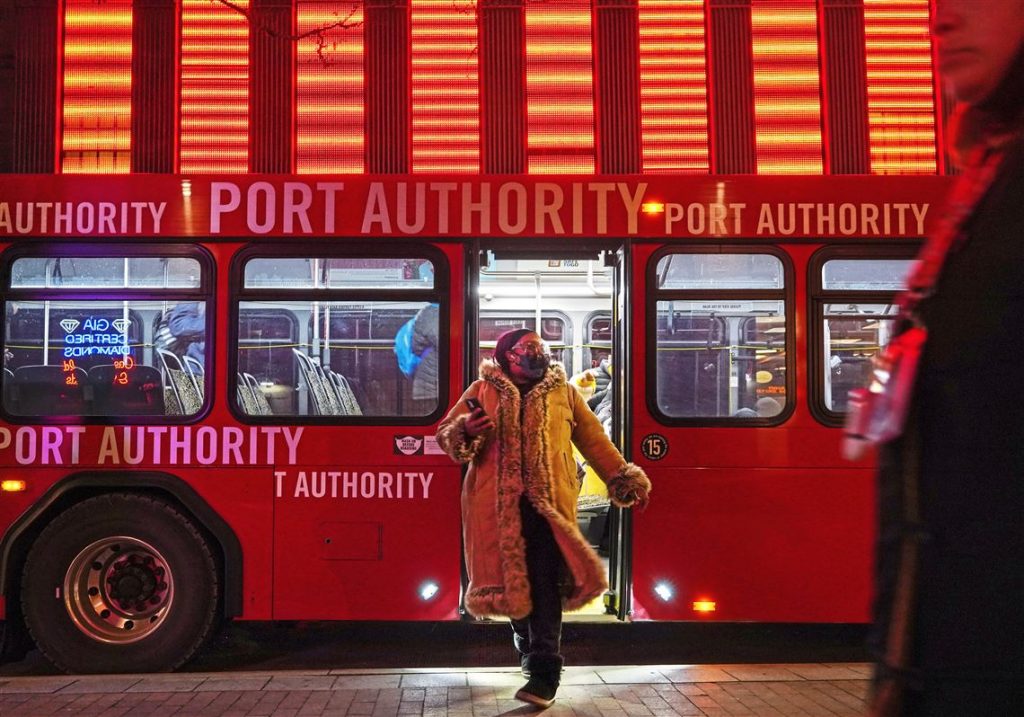
Public comment period closes on Port Authority’s new fare proposal. Dozens speak up for further change.
Last month Port Authority proposed three changes to their fare policy:
- An increase in the base fare to $2.75 for those paying with CONNECT card stored value.
- Free Transfers for 3 Hours for those paying with CONNECT card stored value.
- A rolling timeline for weekly and monthly bus passes, so that the bus pass “week” starts when you first tap the pass, not along a Sun-Sat schedule.
…and opened a 40-day period for the public to give feedback. This public comment period closed on May 5th. One thing was made clear by dozens of testifiers, public comments, and opinion pieces: the Port Authority needs to be more aggressive with fare equity changes.
Public testifiers agree: new changes leave out riders most in need. Port Authority must extend emergency fare relief to low-income riders and increase CONNECT card access.
Across the board, the public was in support of free transfers and 7-day/31-day timeline for weekly and monthly passes. These are common-sense changes that have been uplifted by riders for years. But even Port Authority’s own report showed that these changes leave out riders most in need: low-income riders and those who cannot access CONNECT cards.
The Port Authority needs to quickly implement these newly proposed changes so that they can pursue more aggressive fare relief programs like those started with federal COVID stimulus money in Los Angeles, San Fransico and Richmond.
Access to public transit is access to food, healthcare, and economic security. It is a matter of life or death not only for residents of Allegheny County but also for the transit agency itself. Port Authority’s ridership has been stuck at 40% of pre-pandemic levels. Fare relief programs could jumpstart the agency and get people moving safely to essential needs.
Check out these news stories on the Public Comment Period and a supportive opinion from the Post-Gazette Editorial Board to learn more:
- “Port Authority should use stimulus money to get more people riding” from the Editorial Board of the Pittsburgh Post-Gazette, 4/28/21
- “Advocates Say Port Authority’s Fare Changes Would Fail The People Most In Need” by Margaret J. Krauss at WESA, 3/26/21
- “Transit riders who pay cash tell Port Authority about concerns with fare-structure changes” by Ed Blazina at the Pittsburgh Post-Gazette, 4/16/21
- “New coalition of 43 groups pushes Port Authority to reduce fares for low-income riders” by Ed Blazina at the Pittsburgh Post-Gazette, 4/21/21
- “Advocates: Port Authority has ‘once in a generation’ chance to help low-income riders with reduced fares“, by Ed Blazina at the Pittsburgh Post-Gazette, 4/22/21